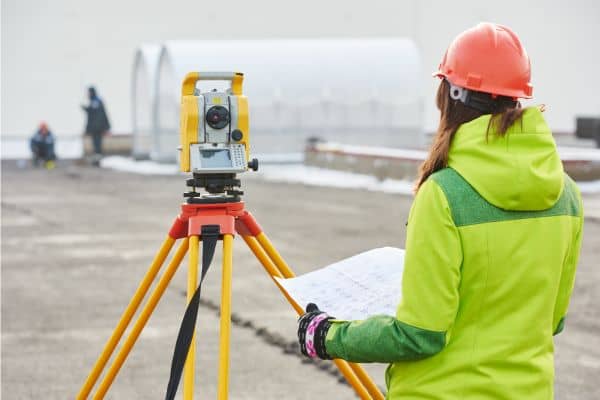In the rush of closing a commercial real estate deal, it’s easy to overlook one critical step—the ALTA survey. But in a city like Cleveland, where aging infrastructure, legacy easements, and fast-moving development projects intersect, skipping this survey can be a costly mistake. Whether you’re buying, financing, or redeveloping a property, an ALTA survey in Cleveland OH is essential to uncover potential legal, zoning, and access issues before they derail your project.

Why the Risks Are Higher in Cleveland’s Commercial Zones
Cleveland’s urban evolution presents unique challenges:
- Historic properties with outdated plats
- Redevelopment zones layered with legacy easements
- Lakefront and Cuyahoga River parcels with murky access rights
- High-density parcels in areas like Ohio City or Detroit-Shoreway
Without a thorough ALTA survey, these issues often go unnoticed—until you’re mid-project and bleeding cash.
Real-Life Pitfalls: What Can Go Wrong Without an ALTA Survey
Imagine these real-world scenarios, all too common in the Cleveland market:

Blocked Access: A buyer closes on a warehouse near the Flats only to learn later that the access road is technically owned by a neighboring property—halting all deliveries.
Unexpected Easement: A development near Edgewater is halted when a buried fiber-optic utility easement is discovered right where the buyer planned to pour footings.
Title Discrepancy: A retail parcel in Collinwood shows a 5-foot boundary mismatch between the deed and actual fencing—triggering months of legal negotiations.
An ALTA survey could have flagged each of these issues before the ink dried on the contract.
What Commercial Buyers Overlook—Until It’s Too Late
Here’s what often surprises buyers unfamiliar with Cleveland’s land landscape:
- Encroachments from neighboring buildings
- Old railroad or industrial rights-of-way
- Irregular zoning overlays and variances
- Unrecorded agreements between prior owners
While a basic boundary survey might skip these critical elements, an ALTA survey goes further by addressing title issues, access rights, and zoning conflicts. Understanding the differences in boundary surveys vs ALTA surveys can help buyers choose the right tool for due diligence.
How ALTA Surveys Align with Lender and Title Expectations
If you’re financing your project, your lender almost certainly requires an ALTA survey—and for good reason.
- Title insurers use ALTA surveys to remove or clarify exceptions on the policy.
- Banks review surveys to validate that collateral is free of unknown risks.
- Attorneys assess compliance with zoning and easement rights.
In Cleveland, where parcel histories run deep and development is booming, due diligence without an ALTA survey is incomplete.
ALTA Surveys as a Strategic Planning Tool
Today’s commercial buyers aren’t just using ALTA surveys to “check a box”—they’re using them to:
- Align design plans with zoning setbacks
- Integrate accurate data into CAD and GIS systems
- Prevent permitting delays caused by access or lot coverage errors
- Negotiate better purchase terms when surprises are discovered early
Think of it not just as a legal requirement, but as a tactical move to strengthen your position at the negotiating table.
Common ALTA Survey Triggers in Cleveland
You likely need an ALTA survey if:
- You’re buying a commercial lot or building with previous improvements
- You’re seeking a title insurance policy for your loan
- Your development involves shared access roads or joint utilities
- You’re acquiring a property with a complex legal history or located in an urban core
Even when not required by law, experienced buyers in Cleveland know that ordering an ALTA survey in Cleveland OH upfront is one of the smartest ways to avoid costly delays and legal disputes later on.
Cleveland-Specific Survey Challenges to Watch For
Here’s what makes Cleveland uniquely challenging (and why an ALTA survey is crucial):
| Challenge | Impact on Project |
| Narrow lots in historic neighborhoods | Hard to identify setbacks and lot line encroachments |
| Outdated legal descriptions | Discrepancies between deed and actual property lines |
| Railroad and industrial corridors | Hidden easements that limit future use or construction |
| Sloping terrain near riverfront | Affects site grading, drainage, and zoning compliance |
Red Flags to Catch—Only with an ALTA Survey
- Access roads that aren’t part of the deed
- Public utilities cutting diagonally across the lot
- Easements with vague descriptions or expired terms
- Neighboring buildings encroaching by inches—or feet
Catching these issues early gives you leverage. Catching them too late means spending money to fix someone else’s mistake.
Key Steps to Order an ALTA Survey in Cleveland
- Hire a licensed Cleveland land surveyor with commercial experience in Northeast Ohio to ensure your ALTA survey is accurate, compliant, and trusted by lenders and title companies.
- Request your title commitment—you’ll need Schedules A and B-II.
- Select Table A items relevant to your project scope.
- Schedule the fieldwork and allow 2–4 weeks for a complete report.
- Review results with your title agent and attorney.
This is not the step to rush or cut corners—especially if your deal involves financing, joint development, or rezoning.
Final Thought: Don’t Gamble on Due Diligence
In Cleveland’s high-stakes commercial property market, an ALTA survey isn’t a luxury—it’s your insurance against costly oversights. For every seasoned buyer who insists on it, there’s someone else learning the hard way what they missed. Don’t be the latter.
Invest in the survey. Invest in certainty.
FAQs:
1. Is an ALTA survey required for all commercial property purchases?
Not always legally—but if you’re financing, insuring title, or developing, it’s strongly recommended.
2. Can I reuse a previous owner’s ALTA survey?
Only if it’s recent and updated to match your title commitment. Otherwise, it’s risky.
3. What’s the difference between a boundary and an ALTA survey?
Boundary surveys show lot lines. ALTA surveys add legal, title, and zoning layers.
4. How much should I expect to pay in Cleveland?
Anywhere from $3,000 to $8,000 depending on parcel size, complexity, and Table A items.
5. Can my deal close without an ALTA survey?
Maybe. But it could also open you up to title disputes, boundary issues, or zoning headaches later.
6. How long does it take to complete one in Cleveland?
Usually 2–4 weeks. Rush orders can be done in less time but cost more.




